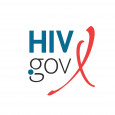During this week’s observance of Sexually Transmitted Infections (STI) Awareness Week, HIV.gov is sharing a roundup of some of our recent coverage about the use of doxyPEP to prevent bacterial STIs. DoxyPEP refers to the use of the oral antibiotic doxycycline as post-exposure prophylaxis after condomless sex. Research on the efficacy and effectiveness of this new STI prevention tool has been presented at several recent conferences where HIV.gov spoke to national experts about it.
The Latest DoxyPEP Research Findings
Most recently, we spoke with NIH’s Dr. Carl Dieffenbach and CDC’s Dr. Jonathan Mermin about the accumulating real-world evidence of the effectiveness of Doxy-PEP presented at the 2024 Conference on Retroviruses and Opportunistic Infections (CROI).
Dr. Dieffenbach, Director of the Division of AIDS at the National Institute of Allergy and Infectious Diseases, discussed two studies. First was a study by the San Francisco Department of Public Health (SFDPH) on implementation of doxyPEP in a single clinic which offered doxyPEP to all clients using HIV PrEP and saw bacterial STIs decrease among those who used doxyPEP by nearly 60% in less than a year, with the highest declines for syphilis (78%) and chlamydia (67%). Then he highlighted a SFDPH presentation of the first findings to measure the effect of doxyPEP at the population level, showing a substantial and sustained decline in the number of chlamydia and early syphilis infections in the city among men who have sex with men and transgender women over the 13 months after the Department released its guidelines for the use of doxyPEP.
- View our conversation with Dr. Dieffenbach about these studies.
- View the SFDPH presentation on clinic level implementation. Read the study abstract.
- View the SFDPH presentation on city-wide resultsExit Disclaimer. Read the study abstract.
In another interview at CROI 2024, Dr. Mermin, Director of the CDC’s National Center for HIV, Viral Hepatitis, STD, and TB Prevention, characterized doxyPEP as “the most exciting intervention for STI prevention in two decades.” However, he also observed that there remains a concerning evidence gap on the effectiveness of doxyPEP among cisgender women. View our conversation with Dr. Mermin.
Just ahead of the start of CROI, NIAID Director Dr. Jeanne Marrazzo underscored the importance of considering gender-specific factors in the design of biomedical prevention studies. Read Biomedical STI Prevention Evidence Is Inadequate for Cisgender Women.
Earlier Conversations About DoxyPEP
We previously spoke to Dr. Dieffenbach about doxyPEP at the International AIDS Conference in Montreal in 2022, after Annie Luetkemeyer, MD, professor of infectious diseases at Zuckerberg San Francisco General Hospital at UCSF, presented findings from the first doxyPEP study, which she co-led. That study found that the use of doxyPEP by sexually active men who have sex with men diagnosed with HIV or taking or planning to take HIV PrEP medication prevented the acquisition of STIs when the doxyPEP was taken within 72 hours of having condomless sex.
- View our conversation with Dr. Dieffenbach about that initial presentation.
- Read a news release from NIAID about the publication of those research findings in the New England Journal of Medicine in 2023: NIH-Funded Study Finds Doxycycline Reduces Sexually Transmitted Infections by Two-Thirds.
Seven months later, at CROI 2023, we spoke with Dr. Dieffenbach and Dr. Mermin about additional data from that first doxyPEP study; results from a second study from France that confirmed the results of the original study regarding reductions in chlamydia, gonorrhea, and syphilis; and results from a study among cisgender women using PrEP in Kenya that indicated that doxyPEP may not be effective for women.
- Learn more from our conversation with Dr. Dieffenbach.
- Learn more from our conversation with Dr. Mermin.
In October 2023, CDC issued draft guidelines on the use of doxyPEP and invited public comment. CDC anticipates publishing the final doxyPEP guidance later this year.
Read more on HIV.gov’s HIV Basics page about how STIs affect people with HIV.
This blog post was published April 19, 2024, on HIV.gov.








Comments
Comments